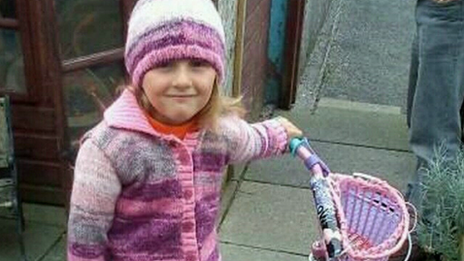April Jones murder: Ten years since girl's abduction
- Published
Det Sgt Hayley Heard says police were not prepared for the horror of April Jones's murder
A detective has relived the moment she had to tell a family their five-year-old daughter would not be coming home.
Det Sgt Hayley Heard was their liaison officer from the moment April Jones disappeared, 10 years ago on Saturday, until Mark Bridger was sentenced for her murder.
She praised the family, from Machynlleth, Powys, for their strength through "dark moments".
April was abducted on 1 October 2012, with her remains never found.
Now-retired, CID officer Ms Heard remembers when April's mother Coral wanted to visit Bridger in prison, and when the parents of Madeleine McCann reached out to the family.
"I think like everybody else, we weren't prepared for the horror that unfolded," she said.
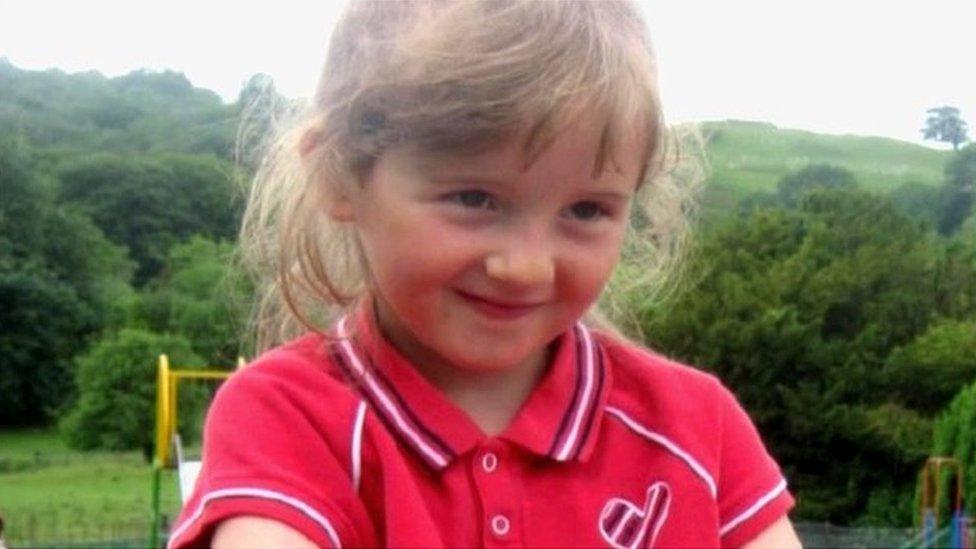
April went missing from Machynlleth in 2012. Mark Bridger was later jailed for life for her murder
Along with a colleague from the public protection unit, Ms Heard was assigned to the family the morning after April disappeared, describing the first few hours as "chaotic, as you can imagine".
She said: "Everyone wanted to look for April, family members were turning up, there was a media frenzy, everybody wanted to know what had happened."
The effort to look for April became the largest search in British police history, with officers and members of the public arriving in Machynlleth from all over the UK.
Ms Heard said the family were "overwhelmed" with the support.
The bad news was given to the family in a room called the "sanctuary", which was a space away from their home, and she added: "The sanctuary was really important, they were having some quite harrowing information shared with them about their daughter.
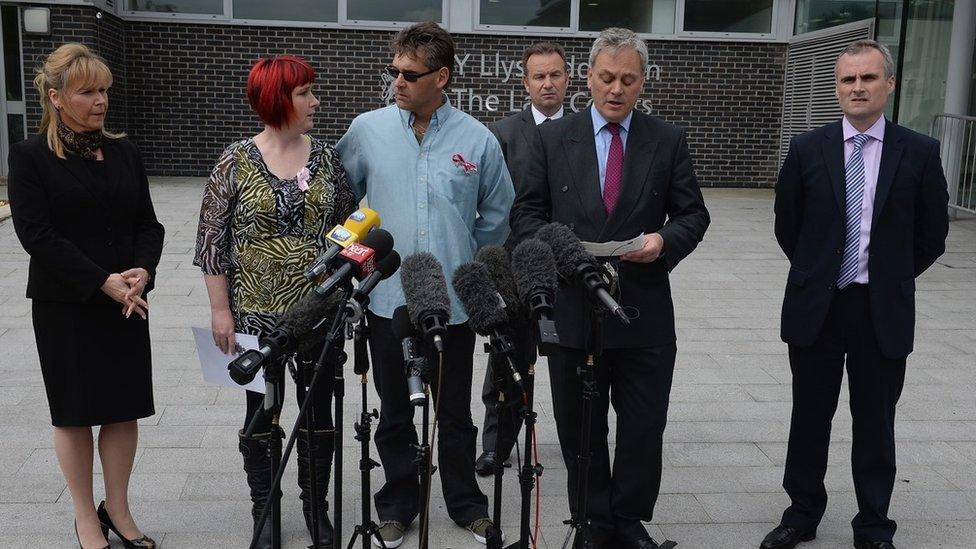
Det Sgt Heard was with the family throughout the harrowing experience - including speaking to the media
"We didn't want to associate all of that bad news within their home. It was a place we could reflect on the horror that was happening really."
Ms Heard said April's family were "incredible" in the face of such horror.
They received hundreds of letters from all over the world, which she had to read before they reached the family.
"They were calling April, Little Welsh Princess, hoping she would be found," she said.
Ms Heard said Coral and Paul Jones were contacted by families in similar situations to them "to offer them comfort because they knew what they were going through", including Kate and Gerry McCann, the parents of Madeleine McCann.
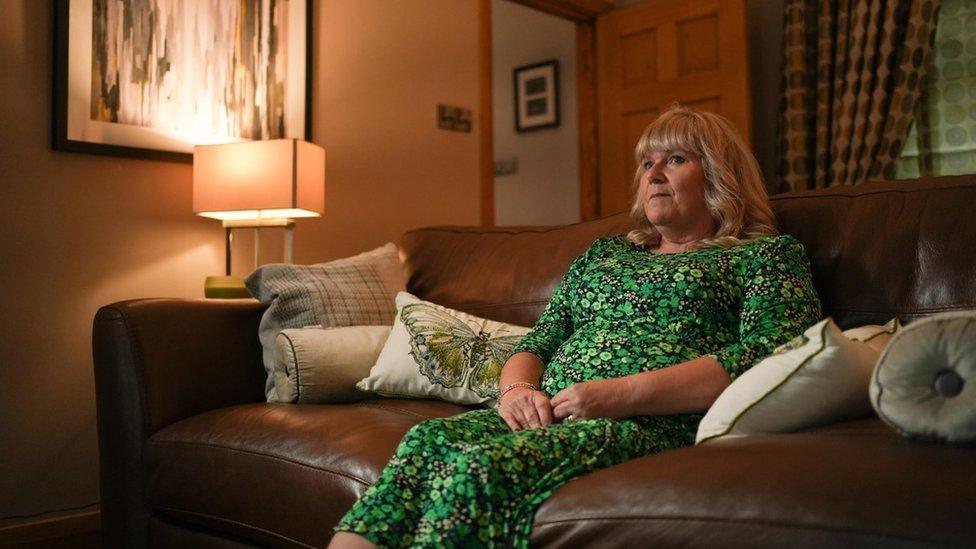
On the 10th anniversary of April's disappearance, the retired police officer has been reflecting on it
"They were just telling them they were aware as parents, bereaved parents, what they were going through, because Mark Bridger has never said where April is, which is difficult for them really to actually have any closure on what has happened, and there was obviously similarities with the McCanns," she said.
Ms Heard also remembers vividly the moment she told the family April would not be returning home.
"It was horrendous, that's the only way I can describe it. We almost had to brace ourselves for the news that we had to share with them," she said.
"They were made aware there had been significant developments in the investigation and that they confirmed that April was not coming back home to them.
"I remember Coral's reaction, she just collapsed. Paul was very composed. I think it was something they couldn't comprehend at that time.
"As the investigation unfolded, I think they did realise that she wasn't coming home."
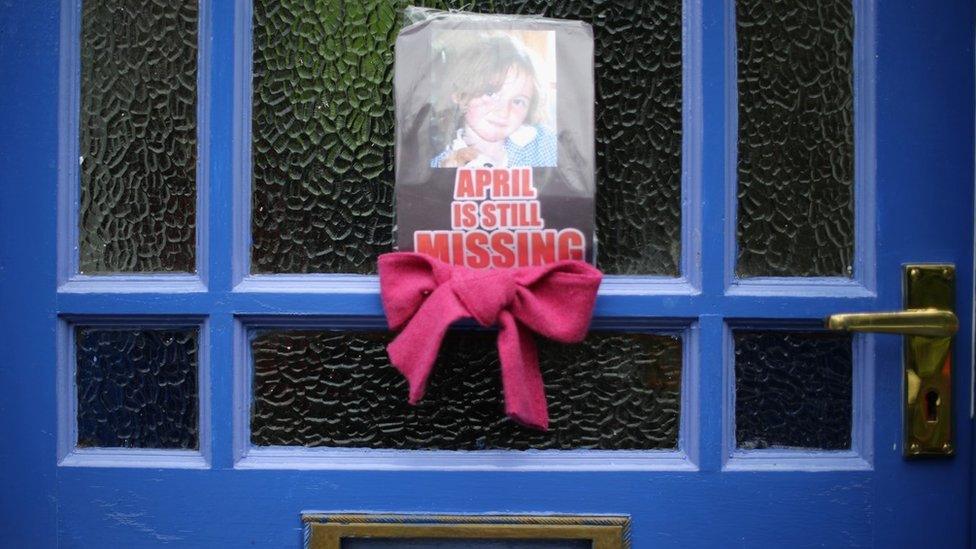
The whole community in Machynlleth got involved in the search for April
She said liaison officers became "their family" and remembers Mr Jones saying life would be like "learning to walk again without a crutch".
Mark Bridger stood trial at Mold Crown Court for four-and-a-half weeks, the jury unanimously convicting him of April's sexually-motivated murder.
Bridger received a whole life tariff and will never be released from prison.
April's family were provided with special accommodation throughout the trial, and Ms Heard and her colleague remained with them throughout the proceedings.
"We would collect them in the morning and then we would stay with them throughout the trial," she said.
"It's the most challenging thing I have ever dealt with.
"They were relieved he had that sort of sentence - Coral always wanted to know where April was, why hadn't he told her where April was, so that she could finally put her little girl to rest."
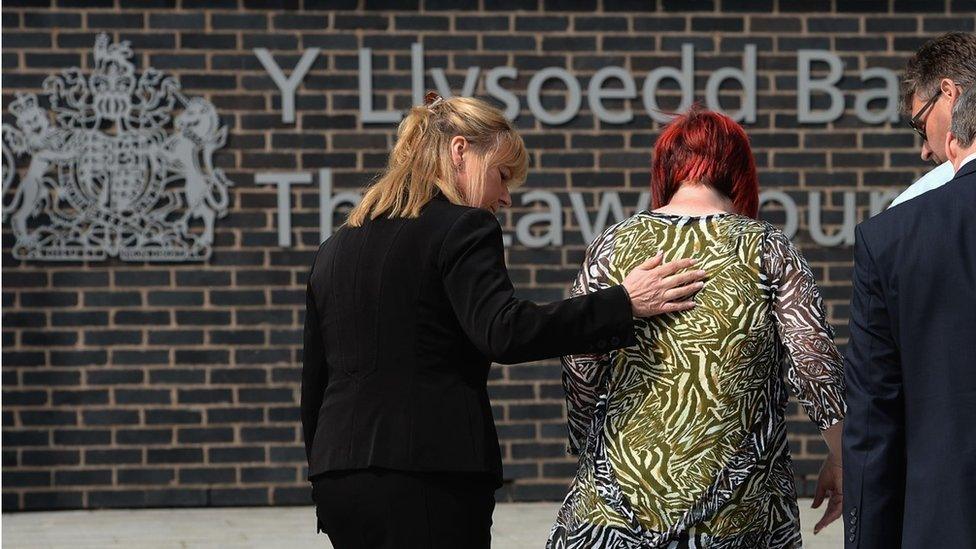
Det Sgt Heard comforted and supported Coral and Paul Jones through the trial
Shortly after Bridger was convicted, it emerged that while on remand at HMP Manchester, he told a prison priest he disposed of April's body in a river - thought to be the Dyfi, close to where he was arrested.
"She actually wanted to go and visit him in prison, to ask personally where April was, what had he done with April, which was awful, and to actually see the torment she was going through was awful," Ms Heard said.
"She was incredible, as was Paul, they dealt with the whole thing with dignity really considering how they must have been feeling."
Coral was discouraged from visiting Bridger in prison and the family launched a campaign to change the law to make children safer.
Ms Heard added: "They were very broken, coming to terms with what happened, but they grew from strength to strength - their courage came from their family members.
"Coral felt she wanted to give something back, and if April's death could mean something, then she would have achieved something."
Reflecting on her time with the family, she said: "It was a real privilege to be part of the investigation team to be accepted into the family like we were.
"There were dark moments, there were moments of despair - I think everybody felt the pain."
Related topics
- Published30 May 2013
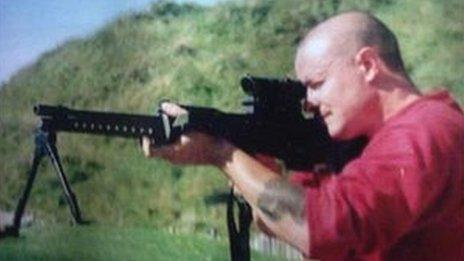
- Published5 June 2013
